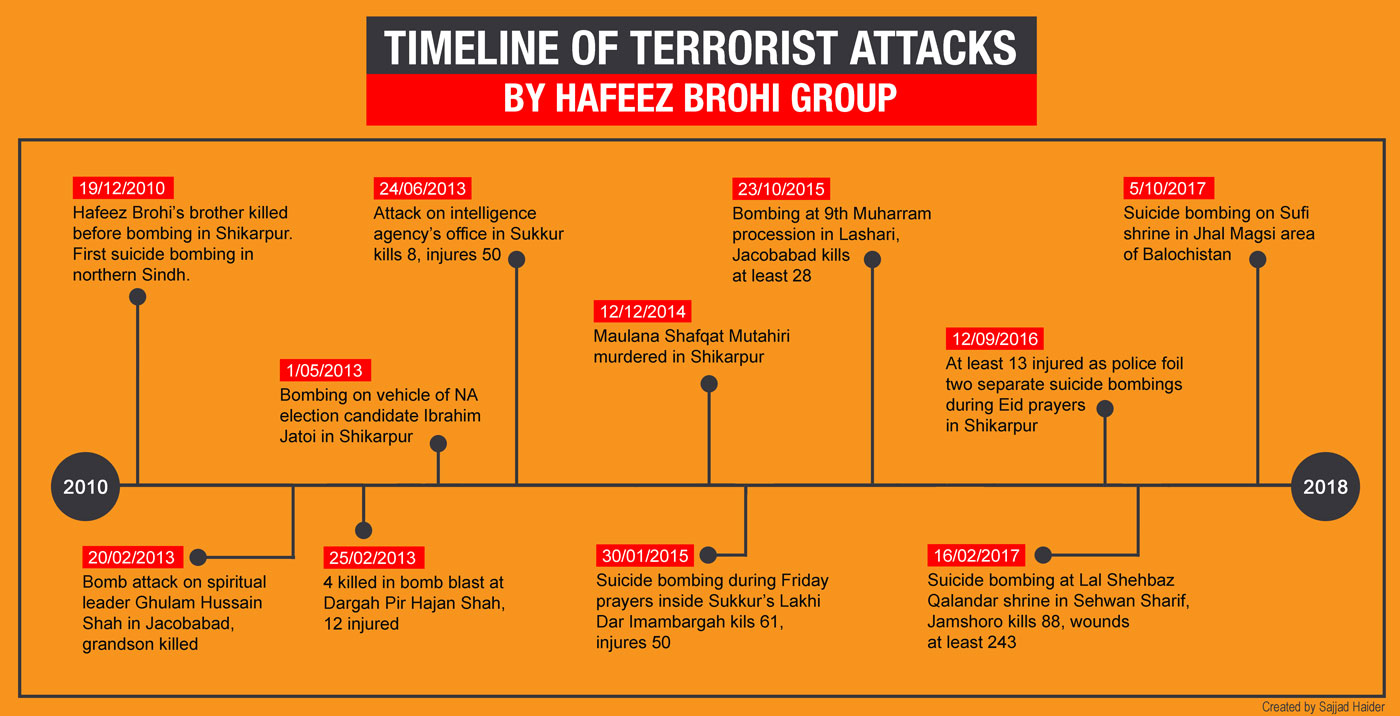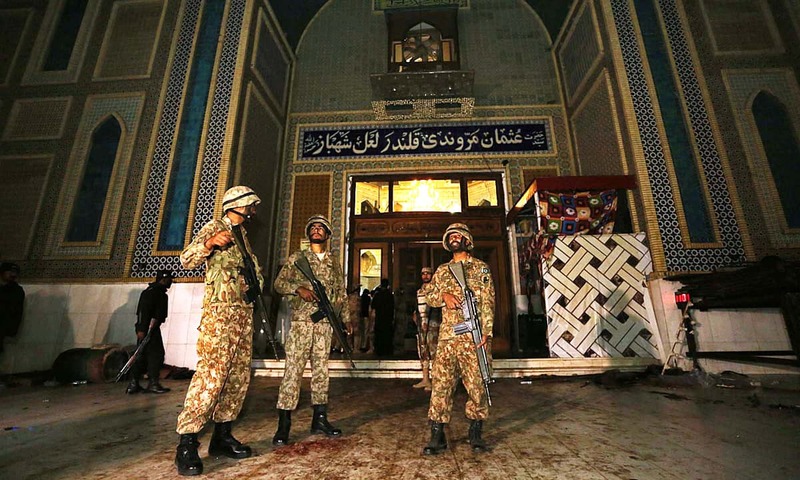It took several years, a relentless effort, and many missed trails before the police finally cornered and killed Abdul Hafeez Pandrani, a militant commander from Shikarpur, in northern Sindh. He was responsible for some of the bloodiest attacks in the province and had remained on top of the most-wanted list of the Sindh police for nearly a decade.
On 28 February, the police in his hometown announced shooting dead two militants – Pandrani and Maulvi Abdullah Brohi – in the Dhadar area of Balochistan province. “Brohi was the Sindh chief and Pandrani the deputy chief of the terror outfit, Daesh,” said Sajid Amir Sadozai, the Senior Superintendent Police (SSP) in Shikarpur. The same day, the police chief in Sindh announced Rs. 2 million reward for the police team that carried out the operation.
Pandrani’s killing is a major blow to militant groups trying to gain a foothold in Sindh.
He was behind the February 2013 attack on Syed Hussain Shah alias Pir of Qambar, a Barevli spiritual leader, in Jacobabad. Shah narrowly escaped, but his grandson was killed. Two months later, a shrine in Shikarpur was targeted. The dead included the spiritual leader, Pir Syed Hajjan Shah, and three of his devotees.
In May 2013, Dr Ibrahim Jatoi, head of the National Peoples Party, miraculously survived a suicide bombing, also in Shikarpur. Later in July, eight people were killed and fifty others injured in an attack on the Sukkur office of the country’s intelligence agency.

Another devastating bombing took place on January 30, 2015, on an Imambargah in Shikarpur’s Lakki Dar area, during Friday prayers. Over 60 people were killed.
The same year, police foiled an attempted suicide attack on a religious gathering on Eid day in Shikarpur’s Khanpur area. The 18-year-old bomber, Usman, who was a resident of Swat, was not able to detonate his explosive-laden jacket in time.
When the law enforcement agencies interrogated him, they found that the terror operation had input from several militant groups. The Tehreek-e-Taliban Pakistan (TTP) leaders, including its then-chief Maulana Fazlullah, sent the bomber personally through Balochistan to strike the Imambargah, the teenager revealed. “In Sindh, the boy was received by Pandrani to prepare for the mission,” states the report, a copy of which is available with Geo.tv. “The banned Lashkar-e-Jhangvi (LeJ) in Balochistan provided the bomber shelter, training and a suicide jacket."

On the Counter Terrorism Department’s Red Book 2017, Pandrani was listed as one of the three terrorists from northern Sindh. The provincial government had offered Rs10 million bounty for him.
One of Pandrani’s brothers was killed in Afghanistan and another was killed in Shikarpur when he carried out the 2013 suicide attack on Ibrahim Jatoi.
The militant began his activities with terror groups in 1998. He would regularly travel to Afghanistan back then. Later, he and his men joined the LeJ in Sindh. Yet, his group mostly worked as freelance, aligning at times with Daesh, TTP or LeJ.
As for Hafeez Brohi, he was responsible for the attack on the Sufi shrine of Pir Rakhel Shah in Balochistan’s Jhal Magsi in 2017. Not much is known about him except that he also belonged to Shikarpur, and has family in Mastung, Balochistan.
Law enforcement agencies believe that Pandrani and Brohi’s killing will help reduce the number of terror attacks in the province.


